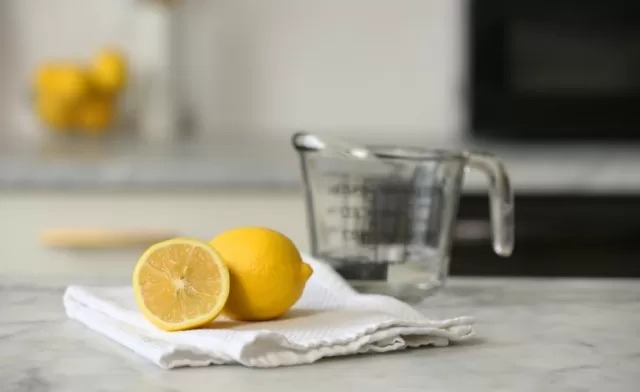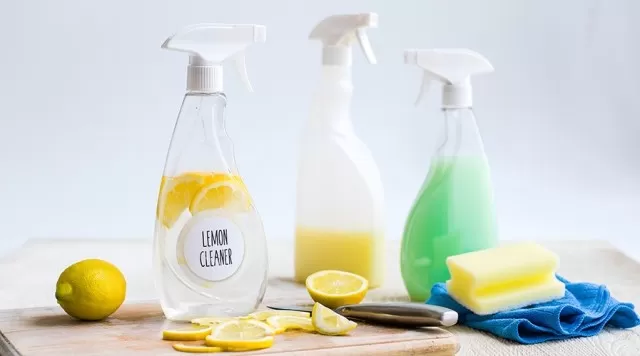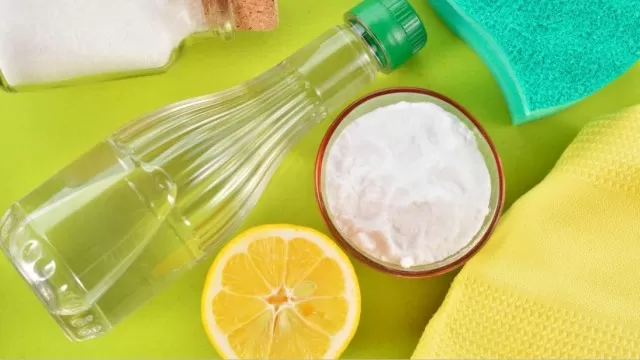Embrace the power of lemons and discover a greener way to tackle your household cleaning tasks.
Lemons possess inherent antibacterial and antimicrobial properties that can aid in disinfecting and sanitizing various areas in your home.
The citric acid in lemons helps kill bacteria, making it a valuable tool for cleaning and maintaining hygiene in the kitchen, bathroom, and other areas prone to microbial growth. By incorporating lemons into your cleaning routine, you can effectively combat germs and create a healthier living environment.
Furthermore, using lemons for household tasks promotes sustainability and reduces reliance on harsh chemicals.
By opting for natural lemon-based solutions, you minimize exposure to synthetic ingredients, reduce chemical waste, and contribute to a more eco-friendly approach to cleaning. Lemons are readily available, affordable, and biodegradable, making them an accessible and sustainable choice for environmentally conscious cleaning practices.
Incorporating lemons into your cleaning routine allows you to tap into their natural properties to address various household jobs effectively.
From removing stains and grease to disinfecting surfaces, lemons offer a versatile and eco-friendly solution for maintaining a clean and healthy home.
Practice Bathroom Hygiene

Promote a hygienic bathroom environment by incorporating lemons into your cleaning routine.
These versatile citrus fruits can help keep bathroom surfaces sparkling and sterilized. Here are some tips from Findley on how to use lemons effectively::Restore shine to fittings: Eliminate water spots and stains on metal shower door frames and bathroom faucets by rubbing them with a cut lemon.
Revitalize grout: Apply lemon juice to grout lines to combat mold and stains.
Take caution as lemon juice is acidic and can damage certain surfaces like tile, stone, and composites. If using lemon juice with borax or baking soda, create a paste and apply it to the grout lines.
Let it sit for a while to bleach the grout, then wipe it off.
Dining and Living Rooms Cleaning

In addition to the bathroom, lemons can also be useful in other areas of your home:
Enhance furniture: Create a chemical-free furniture polish by mixing one part lemon juice with two parts olive or vegetable oil.
This natural polish can help conceal scratches and leave a lustrous finish. Apply the mixture to furniture surfaces using a soft cloth.
Efficient dusting: Brew two tea bags in three cups of water, then let the mixture cool.
Combine the cooled tea with a teaspoon of lemon juice in a spray bottle. Lightly spray the solution onto a microfiber cloth for dusting various surfaces in your dining and living rooms.
Laundry Day Chores

When it comes to laundry day, lemons can assist in achieving cleaner and fresher clothes:
Treat whites: Remove ink stains from white fabrics by applying lemon juice to the stain, with an absorbent clean rag underneath to absorb the stain and protect the work surface.
Brighten white washables by adding a splash of lemon juice to the rinse cycle.
Combat stains and odors: For t-shirts with underarm stains, create a 50-50 solution of water and lemon juice.
Apply it to the stain and let it set for 30 minutes before washing the shirt. If your freshly washed towels have a musty smell, add 1/2 cup of bottled lemon juice to top-loading washing machines or 1/4 cup to front loaders during the rewash cycle.
Avoid overloading the washing machine to ensure effective cleaning.
By harnessing the power of lemons, you can maintain a clean and fresh home while reducing your reliance on harsh chemicals.
Lemons offer a natural and eco-friendly alternative for various cleaning tasks, from bathroom surfaces to furniture and laundry. Incorporate lemons into your cleaning routine and enjoy the benefits of their natural cleaning and freshening properties.
*The information is for reference only.